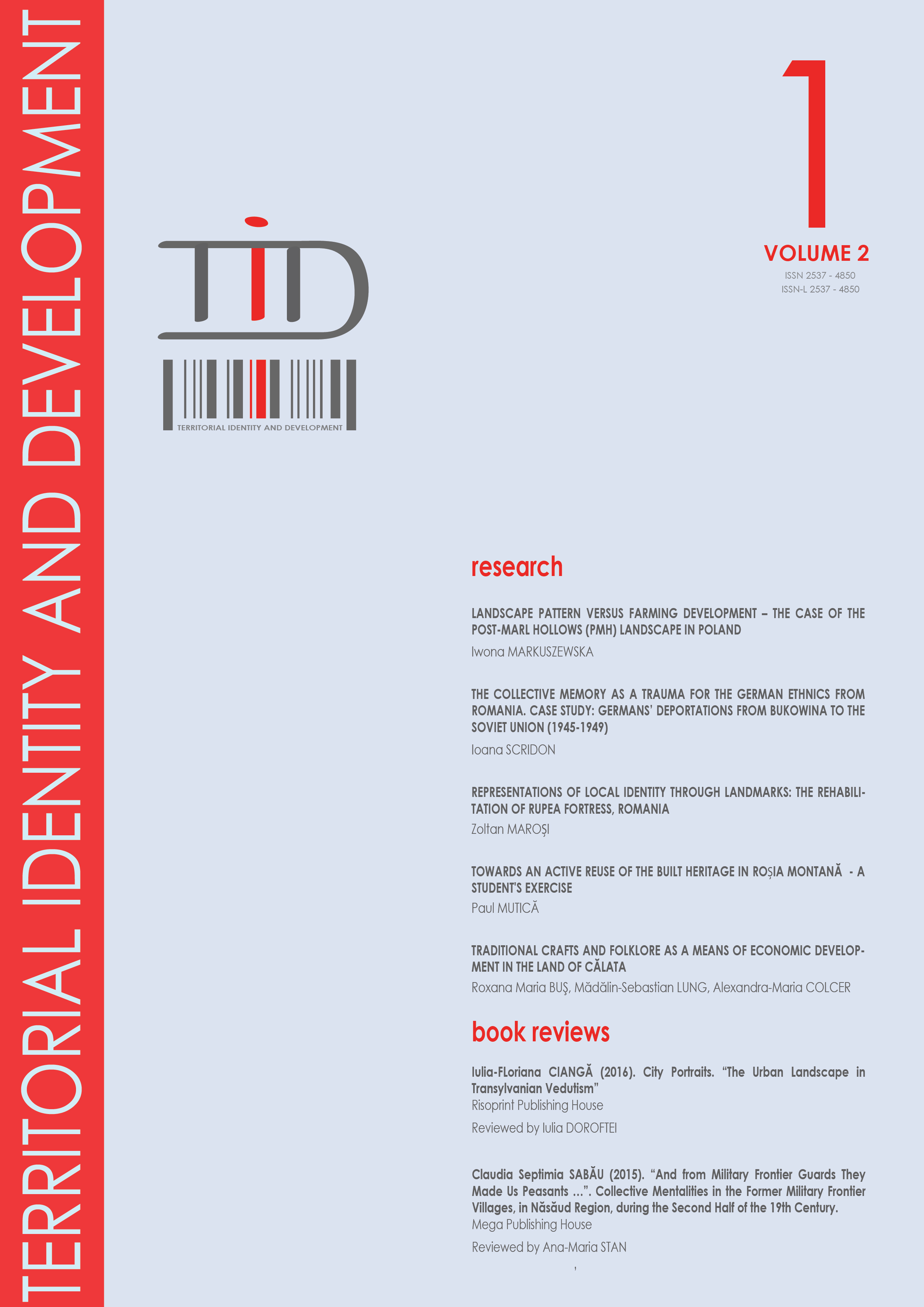THE COLLECTIVE MEMORY AS A TRAUMA FOR THE GERMAN ETHNICS FROM ROMANIA. CASE STUDY: GERMANS’ DEPORTATIONS FROM BUKOWINA TO THE SOVIET UNION (1945-1949)
THE COLLECTIVE MEMORY AS A TRAUMA FOR THE GERMAN ETHNICS FROM ROMANIA. CASE STUDY: GERMANS’ DEPORTATIONS FROM BUKOWINA TO THE SOVIET UNION (1945-1949)
Author(s): Ioana ScridonSubject(s): Geography, Regional studies
Published by: Universitatea Babeş-Bolyai
Keywords: memory;trauma theory; deportation;survivors;place id entity;homesickness;culture;
Summary/Abstract: This study refers to the shapes in which space and time can become traumatic memories. The venture between time and space mimes an identity breach both in the personal and collective history. The deportation represented the wound in the German history for whether Germans from Romania or from different other countries under Soviet influence at the end of the Second World War. The events that occurred during the Second World War affected the entire world and the consequences of the war were catastrophic for Germany as it was losing the war. Also the consequences of losing the war by Germany were noticed by the German ethnics who lived in the areas occupied by Russia. Germans were picked up for deportation with the sole purpose of using them for rebuilding the economy and infrastructure of the Soviet Union. Memories of the deported, collected through interview, represent the unique source of documentary material which is also a cry for help over the drama and horrors of deportations that are now more real than ever and can be seen in physical and psychological traumas that are now visible scars.
Journal: Territorial Identity and Development
- Issue Year: 2/2017
- Issue No: 1
- Page Range: 18-30
- Page Count: 12
- Language: English

